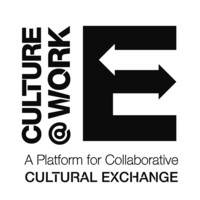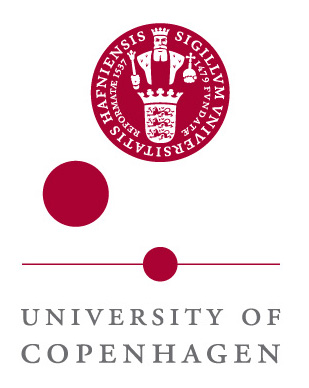ABOUT
Developed and run by Canan Marasligil, City in Translation started in 2015 as a project exploring languages in urban spaces, focusing on individual cities and their specificity with regard to language diversity. Celebrating a decade of explorations, City in Translation has evolved into a publishing platform for multilingual writing and literature in translation, fostering discourse and conversations around the art of translation.
self-portrait (Amsterdam, October 2024)
ARTIST STATEMENT
City in Translation is an artistic practice that began in 2015 as an exploration of languages in urban spaces. Initially a gesture of "translating cities" through writing and photography, this project has since evolved into something more expansive: a way of transforming literature into a public space. Over the past decade, my work has intertwined diverse forms—writing, photography, translation, and visual art—to create a platform where literature is no longer confined to private, written spaces but becomes a shared, accessible environment through the gesture of translation. A public space invites participation, and in this context, the collective becomes central. Translation holds space for this movement.
Through City in Translation, I capture the languages that populate urban spaces—fleeting words, signs, advertising, graffiti, slogans, and more. These moments are not merely documented, but reinterpreted through my lens, adding new layers of meaning (a process similar to literary translation). Whether I am in a city for a short time or returning over the years, these languages live on in my personal archives, in online spaces, during workshops, or in the pages of various publications. City in Translation allows these languages to exist beyond the moment of their expression, asserting their presence in the collective memory of the city.
As my practice has developed, I have come to see literature not as something that exists solely in books or on pages, but as a public space itself—a space where stories and ideas are created, imagined, and shared, where participation can happen on equal terms for everyone. Translation plays a central role in this process. It is not simply an act of converting one language into another; it is an act of participation through the creation of common ground. It is hospitality, as described by writer Chris Keulemans in his book Gastvrijheid: a plea for solidarity, resistance, and love. Hospitality, in this sense, is about creating spaces where people can truly share and grow, without the pressure of always having to ‘pay back.’
Cities aren’t always hospitable spaces, but the act of translation can reimagine our existence within them. When people with different linguistic biographies come together to translate, they contribute to the construction of this public space, engaging with one another and with the urban landscape around them. Translation becomes a way of collectively claiming and creating space, where meaning and stories are constantly reshaped through interaction and collaboration.
City in Translation has evolved into a physical materialization of this idea—a platform where literary and visual works are published both online and in print. This platform embodies the belief that literature is a dynamic, collective experience, capable of shaping public discourse and holding space for imagination through translation. By focusing on languages that often go unseen in urban environments, my work challenges the notion of a monolingual world, highlighting the multiplicities of language and experience that exist within our cities. This complexity is also reflected in the literatures I engage with—written by people who exist in many languages and cultures, both inherited and imagined, all contributing to our shared reality.
Through City in Translation, I aim to foster a space where languages—often invisible or overlooked—are brought to the forefront, where literature becomes a shared, living public space, and where the act of translation empowers us to participate in the creation of equal societies, where we are all participants on our own terms.
Amsterdam, January 2025
ABOUT THE AUTHOR
Canan Marasligil (she/they) is a multilingual writer, literary translator and artist based in Amsterdam.
As an intersectional feminist who strives to challenge dominant narratives, Canan advocates for representation, equality and diversity, especially in the field of literary translation.
Whether it is creating, reflecting, translating, or working with cultural organisations, Canan’s practices intertwine with always at the heart the urge to hold space for imagination and reflection, and the transmission of knowledges and passion. As she explores creativity through various media, she keeps moving between the digital and analogue, always blurring the boundaries between fiction and non-fiction.
Canan has worked with cultural organisations across wider Europe and has participated to residencies: as translator in residence at the Free Word Centre in London (2013), as a cultural journalist at WAAW in Senegal (2015), at Copenhagen University to start working on “City in Translation”, exploring languages in urban spaces, at La Contre Allée, in Lille (2017), at Lancaster University (2018) and in the Bassin Minier with Mine de Culture(s) (2018-19 and in 2020).
Canan has two publishing endeavours: The Attention Span Newsletter, a monthly invitation for reflection, analysis and imagination, and City in Translation, which is a platform for online publication as well as printed books.
A short history of City in Translation
This website was created as part of this ongoing exploration of how languages appear in urban spaces. The project started thanks to the Culture@Work Writer's Residency at the University of Copenhagen (IKK, Department of Arts and Cultural Studies) in April-May 2015, where Canan focused on the city of Copenhagen to start her research around the "City in Translation".
Since its inception, City in Translation has travelled across Europe and beyond. The current website presents outcomes from various activities:
the Copenhagen Residency (2015)
the Yearning for Turkish exhibition (2017)
the Lille Residency (2017)
a chapter in the Routledge Handbook of Translation and the City (2021)
seminar at Lancaster University (2018)
and more (see videos below)
The site was initially organised around Fictions and Resources, providing complementary perspectives. You can still access the archive:
Fictions features creative writing and other expressions by Canan Marasligil,
Resources provides a collection of material from within and outside academia aiming to contextualise the work of this project and aid in future research.
Cities and the theme of City in Translation have been explored on a daily basis on Instagram.
Interview for Hiraeth Magazine, 2017
YLTSIG Webconference 2020
Presenting City in Translation at the Multilingual Digital Authorship Symposium in Lancaster University, 8-9 March 2018
The research phase of City in Translation has been possible with the support of Culture@Work and the University of Copenhagen. Special thanks to Kristin Veel and Frederik Tygstrup at the University of Copenhagen and Daniela Agostinho at the Catholic University of Portugal.
University of Copenhagen
The Department of Arts and Cultural Studies (IKK) of the University of Copenhagen encompasses international research and education from undergraduate to PhD-level within the subjects of Dance Studies, Art History, Comparative Literature, Modern Culture, Musicology, Theatre and Performance Studies and Visual Culture.
The Department is focused on developing new formats for practice-based research training in the creative sector, mainly on art practices, curatorial practices, NGO-activities and pedagogical practices. These new training formats are specifically directed at tapping into the innovative potential of creative practices.
Culture@Work
The Culture@Work Project, initiated by the Lisbon Consortium and co-funded by the Culture Programme of the European Union, aims to develop an international platform for the circulation of artistic work and for the collaborative training of professionals in the cultural sector.
Culture@Work brings together three stakeholders in the field of academia, the arts and culture :
The Lisbon Consortium, based at the Catholic University of Portugal;
The Barcelona Museum of Contemporary Art (MACBA);
The Department of Arts and Cultural Studies at the University of Copenhagen, Denmark.


